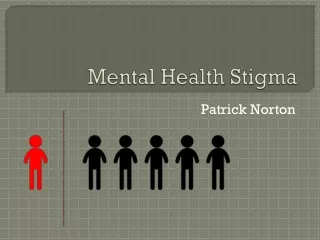The Impact Of Over-the-Counter Birth Control On Reproductive Healthcare In A Post-Roe World

Table of Contents
Increased Access and Reduced Barriers to Contraception
The shift to over-the-counter birth control offers the potential to significantly increase access and reduce numerous barriers currently hindering reproductive healthcare.
Addressing geographical limitations
Many Americans, particularly those in rural areas or underserved communities, face significant challenges accessing reproductive healthcare services. These "healthcare deserts" lack sufficient clinics and qualified healthcare providers, creating substantial barriers to obtaining prescription birth control. OTC birth control could revolutionize access in these areas.
- Reduced travel costs: Eliminating the need to travel to a clinic saves money on gas, transportation, and time off from work.
- Increased convenience: Access to birth control becomes as simple as a trip to the local pharmacy, eliminating the need for appointments and waiting periods.
- Elimination of appointment scheduling: The process becomes significantly more streamlined, removing a major hurdle for many individuals, especially those with busy schedules or childcare responsibilities.
According to the National Rural Health Association, a significant percentage of rural counties lack adequate access to women's health services. This statistic underscores the critical need for alternative solutions like over-the-counter birth control to bridge this gap and ensure equitable access to reproductive healthcare.
Overcoming financial hurdles
The cost of prescription birth control can be prohibitive for many individuals, leading to forgone or delayed access. Insurance complexities further complicate the process, with some individuals facing high co-pays or deductibles.
- Lower cost: OTC birth control would likely be cheaper than prescription versions, making it more affordable for low-income individuals.
- Reduced insurance complexities: The need for insurance coverage would be eliminated, simplifying the process.
- Potential for government subsidies: Government programs could potentially offer subsidies or assistance to further reduce the cost for low-income individuals.
Studies have shown that cost is a significant barrier to birth control access for many women. Making birth control OTC could significantly alleviate this financial burden and improve access for millions.
Minimizing stigma and shame
Seeking contraception can be stigmatized, causing many individuals to avoid necessary healthcare. OTC availability could normalize access and reduce the associated shame.
- Greater privacy: Purchasing birth control at a pharmacy offers greater privacy than a doctor's visit.
- Reduced need for doctor's visits: This eliminates a potential source of discomfort or judgment for some individuals.
- Normalized access: Increased accessibility could help destigmatize contraception and promote open conversations about sexual health.
The societal stigma surrounding contraception plays a significant role in limiting access. OTC availability could contribute to a more open and accepting societal dialogue about sexual health and reproductive choices.
Potential Concerns and Challenges of OTC Birth Control
While the benefits of OTC birth control are substantial, potential challenges must be carefully addressed.
Misinformation and improper use
Wider availability necessitates comprehensive education to mitigate the risk of misuse.
- Need for comprehensive education: Public health campaigns and educational initiatives are crucial to ensure proper use and understanding of different methods.
- Potential for increased unintended pregnancies: Incorrect usage could lead to reduced effectiveness and increased unintended pregnancies.
- Importance of clear labeling and instructions: Clear, concise, and easily understandable labeling is paramount for safe and effective use.
Statistics highlighting unintended pregnancy rates underscore the importance of thorough education and responsible usage. Providing clear, accessible information is crucial to minimize potential risks.
Limited access to certain methods
Not all birth control methods may be suitable for OTC sale due to safety concerns or the need for individual medical assessment.
- Regulation and approval processes: The regulatory framework for OTC medications will dictate which methods can be sold without a prescription.
- Safety considerations: Some hormonal birth control methods require medical evaluation to assess potential risks and interactions.
- Patient counseling needs: Some methods may require individual counseling or monitoring, which could be challenging to provide in an OTC setting.
Different birth control methods have varying levels of complexity and associated risks. Careful consideration of these factors is crucial when determining suitability for OTC distribution.
Potential impact on healthcare professionals
The shift towards OTC birth control could have significant implications for reproductive healthcare providers.
- Shift in provider roles: Healthcare professionals may focus more on complex cases or providing additional services.
- Potential job losses: Decreased demand for prescription birth control could lead to job losses for some healthcare professionals.
- Redirection of resources: Healthcare systems might need to reallocate resources to other areas of reproductive healthcare.
The potential impact on healthcare professionals requires careful planning and transition strategies to ensure the continued provision of high-quality reproductive healthcare services.
The Role of Comprehensive Sexual Education and Public Health Initiatives
Successful implementation of OTC birth control hinges on supporting education and public health initiatives.
The importance of education
Comprehensive sex education is paramount for promoting responsible use of contraception.
- Understanding different contraceptive methods: Individuals need to understand the various options, their effectiveness, and potential side effects.
- Correct usage: Proper use is critical for maximizing effectiveness and minimizing risks.
- Recognizing potential side effects: Individuals need to know how to identify and manage potential side effects.
- Promoting responsible sexual health choices: Education should promote responsible decision-making and healthy sexual relationships.
Studies consistently demonstrate the positive correlation between comprehensive sex education and reduced rates of unintended pregnancy.
Public health campaigns
Public health campaigns play a crucial role in disseminating information and addressing misinformation.
- Accessible resources: Easy-to-access resources, including online materials and community outreach programs, are crucial.
- Targeted messaging: Messages should be tailored to different demographics and address specific concerns.
- Addressing misinformation: Campaigns must actively counter misinformation and promote accurate information about birth control.
Effective public health campaigns can significantly improve knowledge, attitudes, and behaviors regarding contraceptive use.
Conclusion
The availability of over-the-counter birth control presents both significant opportunities and challenges for reproductive healthcare in a post-Roe world. Increased access could dramatically improve reproductive autonomy and reduce health disparities. However, addressing potential concerns regarding misinformation, proper usage, and the potential impact on healthcare professionals is crucial. Successful implementation requires a comprehensive approach, integrating increased access with robust public health initiatives and comprehensive sexual education. Ultimately, a future where individuals have convenient and informed access to over-the-counter birth control is essential for achieving true reproductive health equity. Let’s advocate for policies that ensure safe and responsible access to over-the-counter birth control for all.

Featured Posts
-
 Examining Maines Inaugural Post Election Audit Pilot
May 03, 2025
Examining Maines Inaugural Post Election Audit Pilot
May 03, 2025 -
 Nigel Farage In Shrewsbury Reform Party Leaders Visit Flat Cap And Conservative Criticism
May 03, 2025
Nigel Farage In Shrewsbury Reform Party Leaders Visit Flat Cap And Conservative Criticism
May 03, 2025 -
 The Impact Of Cost And Stigma On Mental Healthcare Access A Look At Claim Statistics
May 03, 2025
The Impact Of Cost And Stigma On Mental Healthcare Access A Look At Claim Statistics
May 03, 2025 -
 Chicagos New Harry Potter Shop Everything You Need To Know
May 03, 2025
Chicagos New Harry Potter Shop Everything You Need To Know
May 03, 2025 -
 Abu Jinapor Npps 2024 Election Defeat An Unexpected Setback
May 03, 2025
Abu Jinapor Npps 2024 Election Defeat An Unexpected Setback
May 03, 2025
